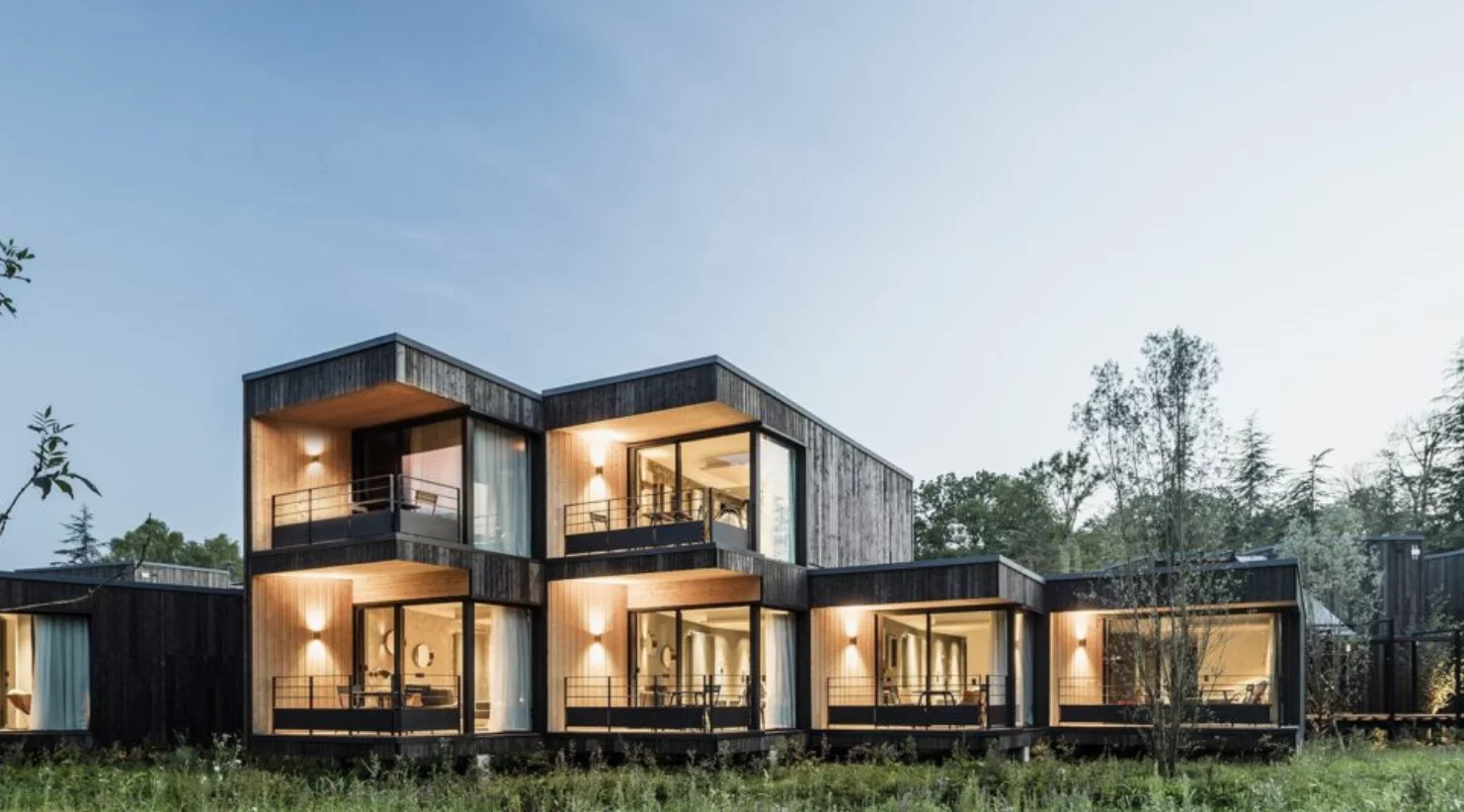Detailed content of our market study
 Inforamtion
Inforamtion
- Number of pages : 35 pages
- Format : Digital and PDF versions
- Last update :
 Summary and extracts
Summary and extracts
1 Market overview
1.1 Definition and presentation
The market for modular construction refers to the construction of prefabricated buildings, including containers (or modules) directly designed in the factory and assembled at the construction site. Assembly makes it possible to create buildings capable of meeting specific or permanent needs: site boxes, offices but also new forms of housing such as container homes. The modules or containers are generally made of steel, equipped with plumbing, heating and electrical currents. The interior finishes are specified when leaving the production workshop. In this study, we will use the names modular construction and prefabricated construction interchangeably to mean the same thing.
Long thought mainly for the construction industry - for the site personnel in particular - and a temporary deployment, modular construction has over time become an important part of the a credible alternative to the construction of individual housing and offices. The modular construction market is divided into the activities of sale and to rental. Often, the modular construction allows you to to meet economic needs to install buildings on a temporary basis, when a building is under reconstruction or in rehabilitation, but also when a need for extension of offices or workshops appears in the tertiary sector.
The modular construction is, therefore, present in the construction sector in the public sector (emergency accommodation, sports changing rooms, school premises, etc.) and in the sector private tertiary sector (offices, shops and kiosks, events, health, etc.).
All our studies are available online in PDF format
Take a look at an example of our research on another market!
 Choosing this study means :
Choosing this study means :
Access to more than 35 hours of work
Our studies are the result of over 35 hours of research and analysis. Using our studies allows you to devote more time and added value to your projects.
Benefit from 6 years' experience and over 1,500 industry reports already produced
Our expertise enables us to produce comprehensive studies in all sectors, including niche and emerging markets.
Our know-how and methodology enable us to produce reports that offer unique value for money.
Access to several thousand articles and paid-for data
Businesscoot has access to all the paid economic press as well as exclusive databases to carry out its market research (over 30,000 articles and private sources).
To enhance our research, our analysts also use web indicators (semrush, trends, etc.) to identify market trends and company strategies. (Consult our paying sources)
Guaranteed support after your purchase
A team dedicated to after-sales service, to guarantee you a high level of satisfaction. +44 238 097 0676
A digital format designed for our users
Not only do you have access to a PDF, but also to a digital version designed for our customers. This version gives you access to sources, data in Excel format and graphics. The content of the study can therefore be easily retrieved and adapted for your specific needs.
 Our offers :
Our offers :
the modular construction market | UK
- What are the figures on the size and growth of the market?
- What is driving the growth of the market and its evolution?
- What is the positioning of companies in the value chain?
- Data from several dozen databases















